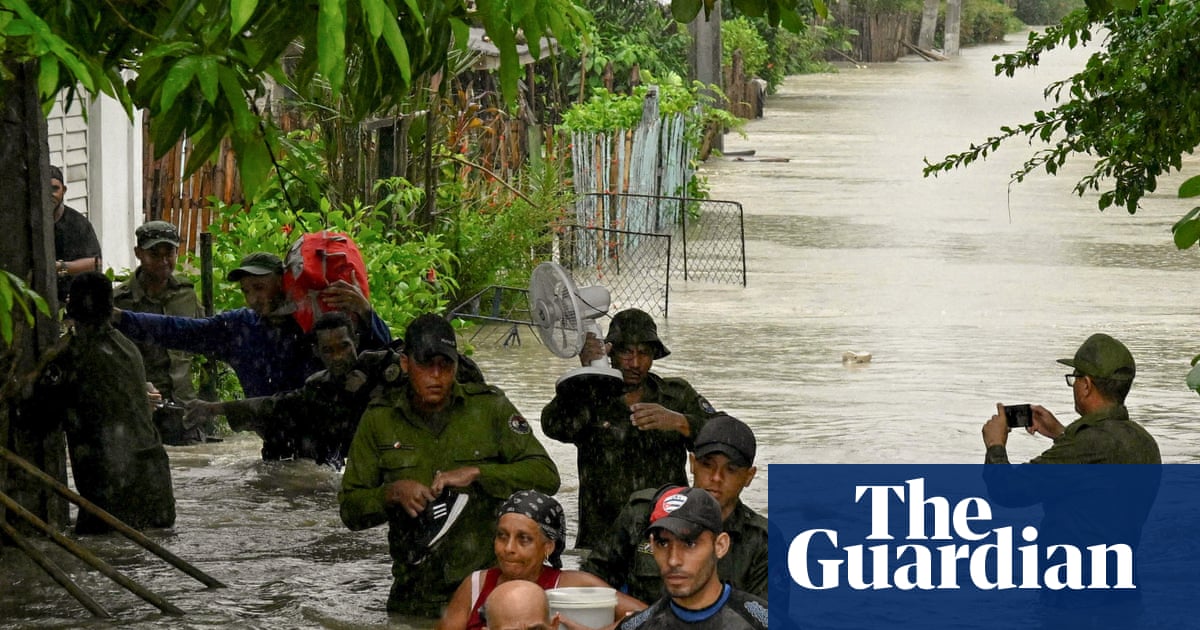
"Maidel Jorge, a 36-year-old farmer, sweats as he chops down a tree to collect wood for cooking: the early November weather in eastern Cuba is still as hot as summer. The tree was young, so the wood is green, which means it will take longer to burn and their meal will take longer to prepare. Jorge, his pregnant wife and their six-year-old son are among 300 people staying in a school turned into an evacuation centre in Grito de Yara, Granma province."
"Jorge's family haven't had electricity for two weeks, the water supply arrives on occasional tankers, and mosquito-borne illnesses are rampant. In the evacuation centre, 18 people are suffering from a fever. Nobody knows for sure which it is: they just call it the virus. It was terrible, says Jorge, describing the hurricane's assault. Nothing was left. Maidel Jorge (left) chops down a tree to collect wood for cooking at the evacuation centre where he is staying with his family."
"While his clapboard house survived, he lost his crops of corn, beans and sweet potato, two oxen and a 100kg pig. A single hen survived. The greatest destruction wasn't caused by wind or rain, but by flooding. No deaths were reported when Melissa one of the strongest storms on record to make landfall in the Caribbean slammed into the island as a category 3 hurricane last month."
Maidel Jorge and his family are sheltering in a school evacuation centre in Grito de Yara, Granma province after Hurricane Melissa struck eastern Cuba. They have lacked electricity for two weeks, rely on intermittent water tankers, and face mosquito-borne illnesses among evacuees. Flooding caused the worst destruction, washing away crops, two oxen and a 100kg pig, and leaving many homes damaged. Melissa made landfall as a category 3 hurricane and dropped over 38cm (15 inches) of rain in some rural areas. The storm intensified hardships created by a four-year economic crisis, US sanctions and the coronavirus pandemic.
Read at www.theguardian.com
Unable to calculate read time
Collection
[
|
...
]